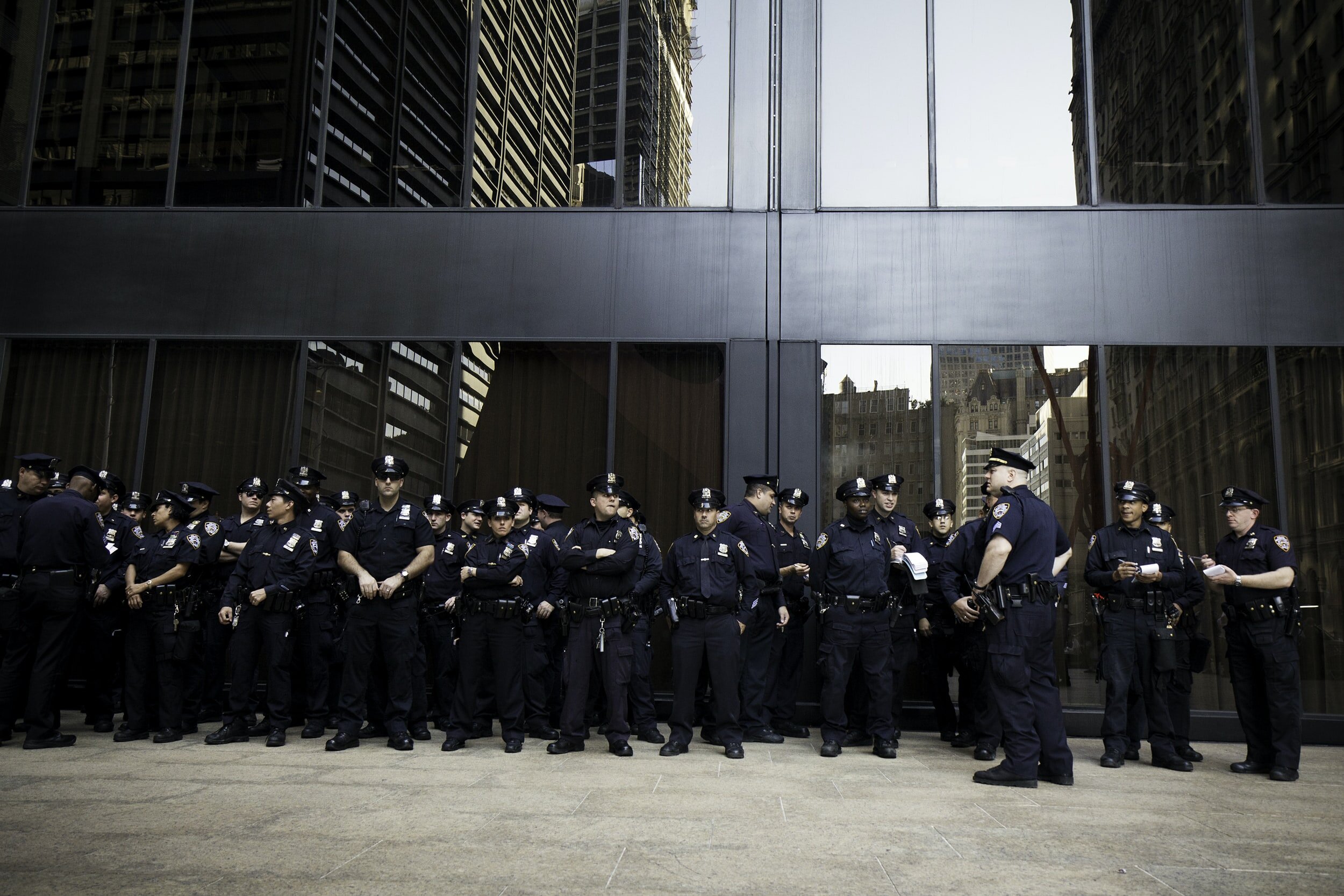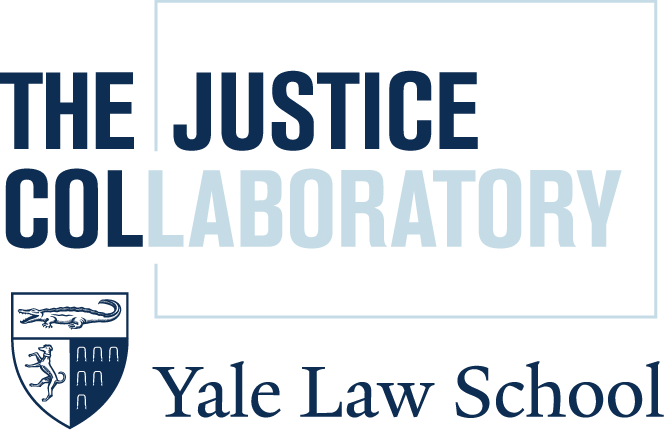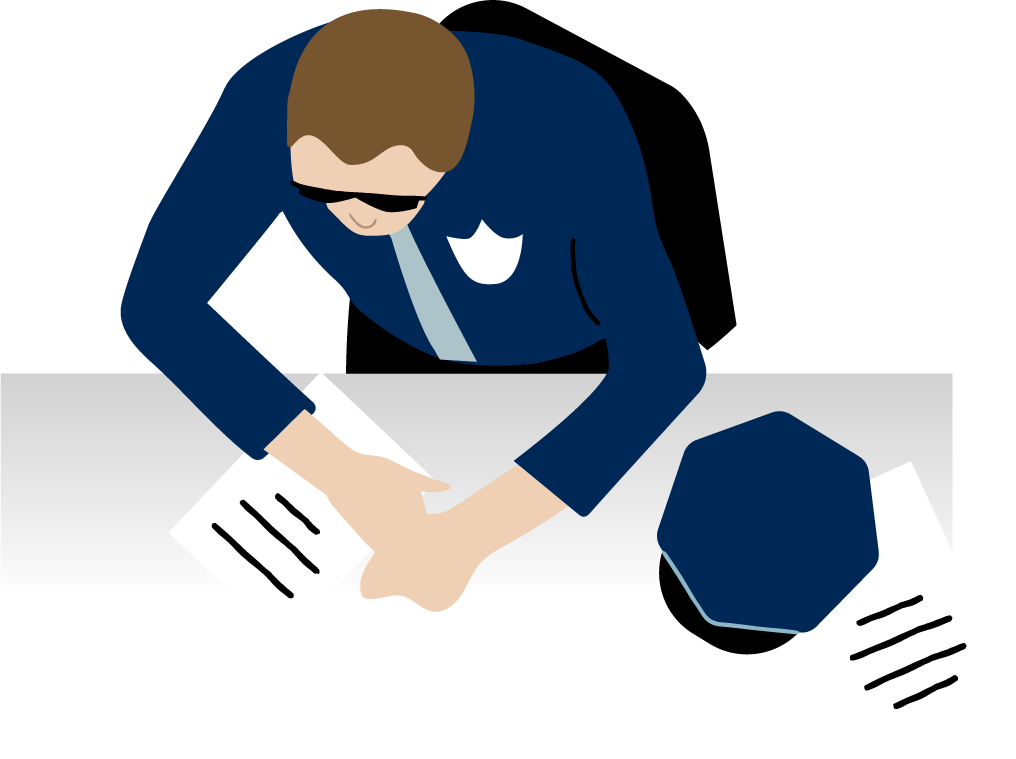Resources for Law Enforcment
We know that serious science can have serious impact. As the call for just policing practices continues to grow nationwide, we aim to move criminal justice authorities towards evidence-based practices to build stronger, safer communities, implement police reforms, and address police misconduct.

Law Enforcement Training Materials and Guides
The National Initiative for Building Community Trust & Justice (2017, 2018)
As part of the National Initiative for Building Community Trust & Justice, the Justice Collaboratory in partnership with the Center for Policing Equity and the Chicago Police Department’s Education and Training Division has developed a three-day procedural justice training module for law enforcement that addresses the theory and implementation of procedural justice as well as the role implicit bias plays in police-community interactions.
The training was divided in three modules and adapted to the unique history and police practices of six pilot sites: Birmingham, Alabama; Fort Worth, Texas; Gary, Indiana; Minneapolis, Minnesota; Pittsburgh, Pennsylvania; and Stockton, California. Each pilot site provided training for its sworn officers though not all officers were trained in each module. Pilot Site interim reports are available through the National Initiative of 2017.
Pilot Sites
-
Trained all 940 sworn officers in PJ1, PJ2, and PJ3.
Birmingham Officer Perception Survey (PJ1 & PJ2)
NI 2017 Interim Report
NI Liaison: Jerry Wiley
Jerry.Wiley@birminghamal.gov -
Trained all 1650 sworn officers in PJ1, PJ2 and 500 sworn officers in PJ3.
Fort Worth Officer Perception Survey (PJ1)
NI 2017 Interim Report
NI Liaison: Assistant Chief Charlie Ramirez
Charles.Ramirez@fortworthtexas.gov -
Trained all 237 sworn officers in PJ1, PJ2 and 197 sworn officers in PJ3.
Gary Officer Perception Survey (PJ1)
NI 2017 Interim Report
NI Liaison: Joy Holliday
jholliday@ci.gary.in.us or (219) 881-7497 -
Trained all 860 sworn officers in PJ1, PJ2 and 857 sworn officers in PJ3.
Minneapolis Officer Perception Survey (PJ1)
NI 2017 Interim Report
NI Liaison: Minneapolis Multi-Strategy Project Site Coordinator Glenn Burt
Glenn.Burt@minneapolismn.gov -
Trained all 850 sworn officers in PJ1, PJ2 and 500 sworn officers in PJ3.
Pittsburgh Officer Perception Survey
(PJ1)
NI 2017 Interim Report
NI Liaison: Commander Eric Holmes
eric.holmes@pittsburghpa.gov or (412) 323-7814 -
Trained all 400 sworn officers in PJ1, PJ2 and 115 sworn officers in PJ3.
NI 2017 Interim Report
NI Liaison: Captain Jim Chraska
James.Chraska@stocktonca.gov or (209) 937-8218
Select National Initiative Evaluations and Reports
Procedural Justice Resources Page
National Initiative for Building Community Trust and Justice
“Model Policies for Procedurally Just Policing”
The Justice Collaboratory at Yale Law School
“Research Roundtable Report”
National Initiative for Building Community Trust and Justice
“How Do People in High-Crime, Low-Income Communities View the Police?”
Urban Institute, pilot sites baseline community perceptions survey

Procedural justice is a more holistic way of thinking about how authorities go about ensuring adherence to or compliance with the law. It calls for treating people with respect and dignity, providing them with opportunities to exercise their voice or have input into policies, and ensuring a fair, transparent process.
Procedural Justice Training Modules
Our procedural justice training modules incorporate lectures, discussion materials, and hand-on practice of skills and techniques into a proactive approach for law enforcement to build community trust and bolster public perceptions of legitimacy. By emphasizing fairness and transparency in dispute resolution, impartial decision-making, and opportunities for communities to voice concerns, these strategies shape police actions that influence the public's willingness to obey the law. What procedural justice does for policing is validate what most already know: the way we treat people matters.
Procedural Justice 1 (PJ1):
Procedural Justice 2 (PJ2):
Procedural Justice 3 (PJ3 Law Enforcement):
Procedural Justice 3 Community (PJ3 Community):
Additional Research and Reports on Implementing Procedural Justice for Law Enforcement
Training Police for Procedural Justice
Wes Skogan, et al., Journal of Experimental Criminology
Identity Traps: how to think about race and policing
Phil Atiba Goff, Behavioral Science and Policy
Review of National Best Practices
Los Angeles Police Commission
Procedural Justice for Law Enforcement
Laura Kunard and Charlene Moe
Procedural Justice Trainers
The trainers included on this list provide procedural justice training that is germane to the curriculum initially developed by the Justice Collaboratory, the Center for Policing Equity and the Chicago Police Department for the National Initiative.
Al Ferreira
Police Officer and Trainer, Chicago Police Department
Cell: 708-715-4839 • cpd022@msn.com
Mike Chatham
Police Officer, Chicago Police Department
Cell: 773-573-7522
Angel Novalez
Sergeant, Chicago Police Department
Cell: 773-844-2104
Scott Meadors
Scott Meadors and Associates LLC
Cell: 916-337-5447 • smeadors4@gmail.com
Dan Goetz
Police Officer, Chicago Police Department
Cell: 708-932-4741
Procedural Justice and the Courts
For resources on procedural justice and the courts, visit the Procedural Fairness for Judges and Courts website.
In " Procedural Justice: Practical Tips for Courts,” Emily Gold LaGratta highlights communication strategies that can be used to promote perceptions of fairness in the court context. This resource was developed as part of a multi-year collaboration involving the Center for Court Innovation, National Judicial College, and the U.S. Department of Justice’s Bureau of Justice Assistance, with guidance from a national advisory board.
In “A Trauma-Informed Court Starts with Procedural Fairness” Judge Brian MacKenzie (Ret.) and Judge Kevin Burke (Ret.) offer insight into what makes some judges very effective and how to achieve litigant satisfaction through procedural fairness.
Procedural Justice for Prosecutors
Procedural Justice for Prosecutors is a curriculum developed through a partnership between the Center for Court Innovation and the Institute for Innovation in Prosecution at John Jay College in New York City. These materials respond to the growing recognition among prosecutors that bolstering public confidence in justice is an essential ingredient of reform. The goal of the curriculum is to assist District Attorney’s interested in beginning conversations about fairness, legitimacy, equity, and better interactions between line prosecutors and witnesses, defendants, and members of the public.










